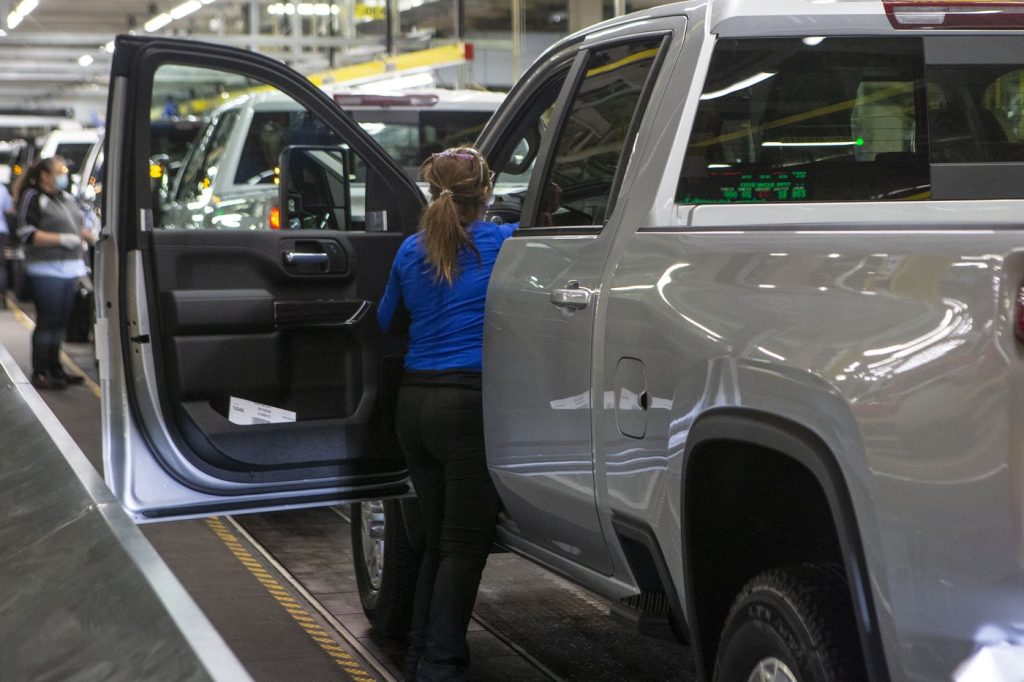For over a century, Oshawa, Ontario, has been synonymous with the auto industry. The Canadian Automotive Museum, local murals showcasing vehicles produced in the region, and the Oshawa Generals hockey team—named in honor of an auto giant—serve as strong reminders of this rich, yet often precarious, history. Workers in the auto sector have faced economic downturns, layoffs, and significant plant closures, such as the nearly two-year halt in production at the General Motors plant in Oshawa starting in 2019.
However, the most significant threat faced by these workers has emerged from U.S. President Donald Trump's tariffs, which impose a hefty 25 percent duty on imported vehicles, with some temporary exemptions for parts under the Canada-U.S.-Mexico Free Trade Agreement. Many in Oshawa believe the implications of these tariffs are more daunting than previous challenges.
Trump’s administration aims to move manufacturing jobs back to the United States, jeopardizing hundreds of thousands of jobs in Ontario, particularly in the automotive production and supply chain sectors in Oshawa. Jeff Gray, president of Unifor Local 222, which represents autoworkers at GM in Oshawa, noted that the current circumstances are distinct from typical sector struggles. “This is an unusual situation to be in because we’re really in a fight with one man and his small group and his administration,” he stated in an interview. With no straightforward way to influence Trump directly, the union has focused on lobbying employers and Canadian politicians.
The automotive legacy of Oshawa dates back to the late 19th century when the McLaughlin carriage company began operations. McLaughlin ventured into automobile manufacturing in 1907 and merged with Chevrolet Canada in 1918 to create General Motors Canada. Despite the industry's non-linear growth, GM continued to expand its presence, growing its workforce and production capacity until the late 20th century. In the 1970s, tens of thousands of individuals from Oshawa and the surrounding areas were either employed directly in auto production or in related supply chain sectors, marking a prosperous period for both the industry and the city.
Lance Livingstone, who became an autoworker in that booming era after following in his family's footsteps, reflected on his experiences, stating, “I was lucky. I was at a good time when I worked.” However, he expressed concern for younger workers today, who are faced with uncertainty regarding their job stability amid the tariffs. Jeff Gray noted the industry's slow decline since he joined GM in 1997, where the number of shifts has dwindled from eight at three separate locations to three shifts at just one plant, currently employing about 3,000 individuals. The Oshawa plant once produced several models, including the Chevrolet Impala and Camaro, but now solely focuses on assembling Chevrolet Silverado pickup trucks, with an output of 660 vehicles every 24 hours.
The closure of the GM plant in 2019, part of a broader global restructuring effort, left many workers laid off or retiring, with almost 98 percent of the nearly 3,000 workers impacted. Nevertheless, GM's decision to retool the plant in 2020 allowed for the production of the Silverado to resume in late 2021. Carl Stitt, a worker who returned, is now apprehensive about potential layoffs. “Without a job, I won’t be able to bring food to the table or pay my mortgage,” he warned.
Among the current workforce, many were new hires post-reopening, unfamiliar with the industry's usual volatility. Jason Gale, a GM employee and union representative with 23 years of experience, expressed mixed feelings of fear and optimism. “One thing that we are good at doing is fighting for our jobs, and we will continue to fight to build vehicles in Canada,” he affirmed. Gale emphasized that for companies wanting to sell in Canada, maintaining a production presence in the country is essential, given the skilled workforce capable of manufacturing high-quality vehicles.
The tariffs have had immediate repercussions, resulting in a two-week shutdown at the Stellantis assembly plant in Windsor, Ontario. Premier Doug Ford has voiced his concerns regarding the future of Ontario's automotive sector. Jennifer French, a member of the Ontario Parliament representing Oshawa, noted that while autoworkers are accustomed to uncertainty, the current trade tensions have introduced an unpredictability that is difficult to navigate. “The threat of tariffs is a different beast,” she remarked.
French drives a 2014 Chevy Impala made in Oshawa and is familiar with the workers who contributed to its production. She expressed hope that political promises to advocate for workers will materialize after the federal election, acknowledging Oshawa's long-standing roots in the automotive industry and the quality associated with local production.
Museum displays, such as a 1908 McLaughlin Model F and a 1955 Buick Special, highlight this legacy, including a Chevrolet Lumina signed by workers to commemorate a quality control award. Gray, the Unifor Local 222 president, remains hopeful regarding the industry's future despite unprecedented challenges, arguing that the North American auto supply chain is so deeply integrated that it would take the U.S. over a decade to achieve self-sufficiency in production. He believes the urgency to navigate these economic challenges is felt by both manufacturers and the Trump administration.
Ultimately, Gray finds optimism in the unity displayed by Canadians in response to Trump’s tariffs, which he believes will help the community persevere, just as it always has.










